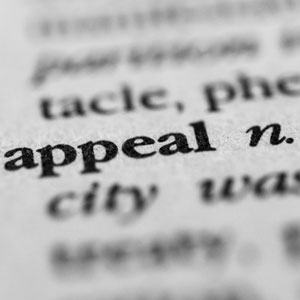Appealing A Child Abuse Conviction In Michigan
 Grounds For Appealing A Child Abuse Conviction In Michigan
Grounds For Appealing A Child Abuse Conviction In Michigan
Child abuse cases, much like sex crimes, present unique challenges in terms of post-conviction appellate practice. It’s crucial to understand that reversing a child abuse conviction based solely on a legal technicality can be exceptionally difficult. To successfully appeal a child abuse conviction, it’s often necessary to convince the court that either there is a very good chance that the defendant is factually innocent, or that the trial process that led to the conviction was so fundamentally flawed, that it cast doubts on the reliability of the conviction.
These cases are inherently challenging due to the nature of the crimes, frequently involving the abuse and mistreatment of society’s most vulnerable individuals. Law enforcement officials and the judicial system often approach these cases with a firm belief that no effort should be spared in securing convictions for such serious crimes.
Various grounds might support an appeal for a child abuse conviction. These include:
- Ineffective Assistance of Counsel: This has become a prominent issue in child abuse appeals. If a defense attorney’s performance was deficient and it affected the outcome, this could be grounds for an appeal.
- Legal Errors: These could include mistakes made by the judge, such as improper admission of evidence, barring the admission of defense evidence or witnesses that should have been permitted, or permitting testimony such as hearsay or other out-of-court statements that should have been disallowed.
- Constitutional Issues: The denial of a defendant’s sixth amendment right to confront witnesses or present a defense can form the basis of an appeal.
- Prosecutorial Misconduct: In high-stakes cases like child abuse, prosecutors may overstep their bounds, including making improper pleas for sympathy, inappropriate questioning of witnesses, or eliciting improper testimony from their witnesses.
Child abuse convictions often rely heavily on the testimony of doctors and other medical professionals. Importantly, these witnesses have serious potential biases due to their roles within child protection teams. Additionally, prosecutors may use statements from parents to hospital medical personal and/or social workers, given during interviews about the child’s injuries, against the defendant at trial. In some cases, this could be a legal error, particularly if the parent couldn’t adequately explain the injuries.
A key part of the post-conviction appellate review will include assessing the validity of this testimony, and whether the law was properly applied throughout the trial process. For example, in shaken baby or abusive head trauma cases, the allowing the prosecutor’s medical experts to go to far in their testimony, or placing limitations on the testimony by defense experts, may violate the defendant’s rights and serve as a potential ground for appeal.
Key Factors In Appealing Child Abuse Convictions
In child abuse cases, particularly those involving infants, doctors are often permitted to provide not only testimony in details about the injuries the child has sustained, but also testimony that establishes the causation of injuries. For instance, a child abuse pediatrician might assert that the only way a three-month-old infant could suffer from a subdural hematoma, retinal hemorrhaging, and brain swelling is through shaking. This line of reasoning, though accepted in many courts, has been increasingly challenged as potentially flawed or “junk science.”
In response to this type of evidence, there are several potential legal errors made during a trial that might serve as the basis for an appeal. These include:
- Violation of the Defendant’s Right to Confront Witnesses: Prosecutors often present witnesses whose statements the defendant cannot challenge through cross-examination. For example, a child protection team leader might refer to a radiologist’s report during their testimony, but since it’s not the radiologist testifying, the defense attorney can’t cross-examine the report. This can be considered a violation of the defendant’s Sixth Amendment right.
- Failure to Consult Defense Experts: Defense attorneys often neglect to engage with defense experts who could refute the evidence against their client. According to two relatively recent Michigan Supreme Court cases, People v. Ackley, and People v. Johnson, effective representation at trial requires a defense attorney to consult with, and probably hire, defense experts to help prepare the case and present opposing expert testimony. The Michigan Supreme Court has further held that the expert must have the correct professional perspective; hiring an expert who belongs to the “wrong camp” could be seen as ineffective assistance of counsel.
- Denial of Defense Expert Testimony: Even when a defense attorney does consult the right expert, trial judges sometimes bar the defense expert from testifying at trial. This often happens when the prosecution challenges the scientific reliability of the defense’s expert and files a Daubert Motion, calling on the court to prevent the defense expert from testifying. Denying a defendant’s expert from testifying violates the defendant’s Sixth Amendment right to present a defense and confront witnesses.
These issues together create a set of related legal and constitutional violations that should be examined when considering a potential child abuse appeal. The key areas of concern are ineffective assistance of counsel, the right to present a defense, and the right to confront witnesses. These factors can often intertwine and have a combined impact on the trial’s outcome.
For more information on Appealing A Child Abuse Conviction In Michigan, a free initial consultation is your next best step. Get the information and legal answers you are seeking by calling (248) 509-0056 today.

Call Today For Your Free Case Strategy Session
(248) 509-0056

 Grounds For Appealing A Child Abuse Conviction In Michigan
Grounds For Appealing A Child Abuse Conviction In Michigan